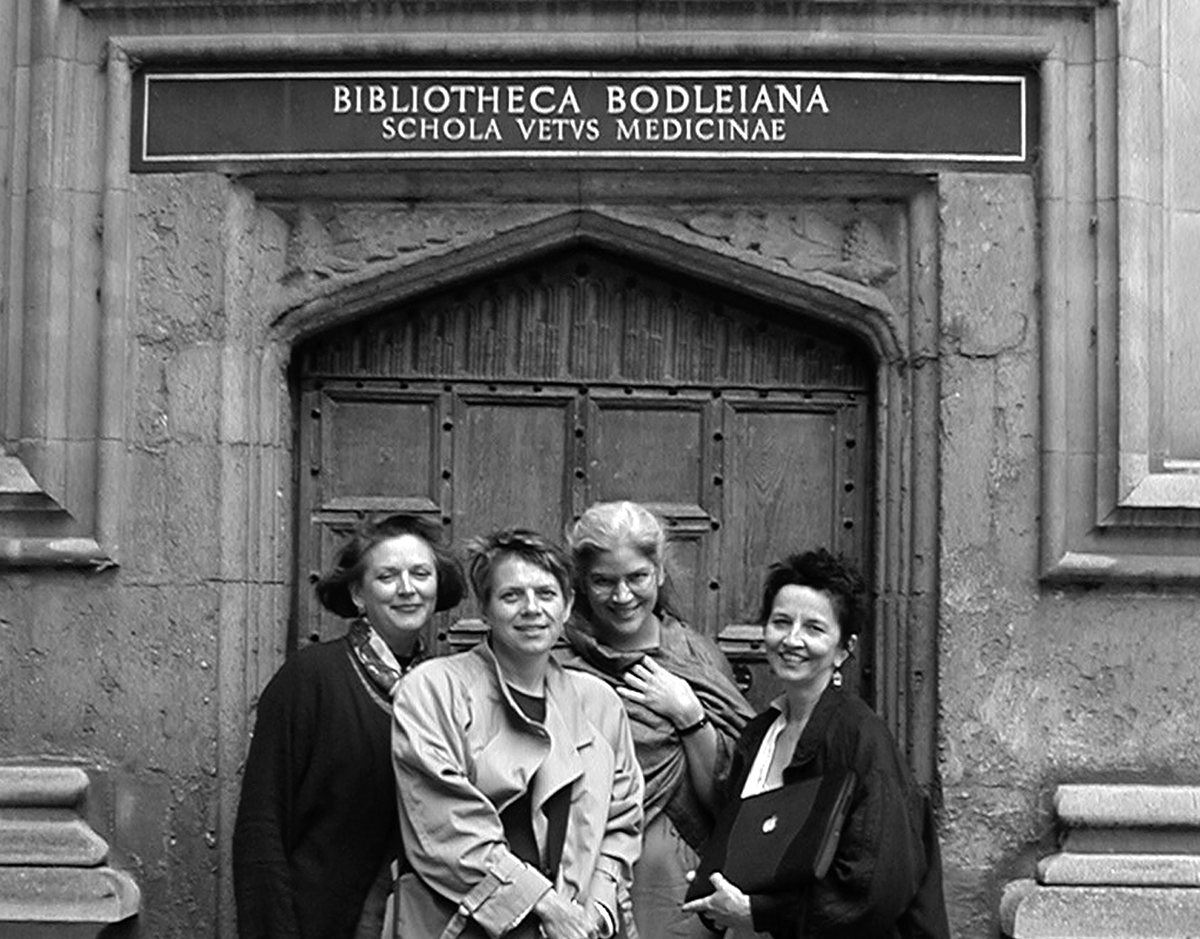
by Louise M. Bishop, Associate Professor of Literature, Robert D. Clark Honors College
I’m of a generation—maybe there are others of you, and maybe it’s not as generational as I might think—where we “made do” with whatever sorts of academic career we could cobble together. Sometimes it could mean trailing a spouse, sometimes it could mean working in a non-tenure-track position, sometimes both; always it seemed to mean that there was no local automatically—and immediately—available berth to support the intellectual growth and research that a PhD seemed to promise. Those of us in non-tenure-track positions had to make our own time for reading and writing, including the necessity to share that reading and writing since departmental resources were minimally available. Keeping up a scholarly life was an uphill battle. The lifeline that sustained me and others in life-situations like mine was CSWS.
CSWS provided a number of things vital to the unplaced:
- a place—Hendricks Hall
- a vibrant and diverse community of scholars from across campus
- activities, mainly through its RIGs, that included reading groups, visiting scholars, writing exchanges through works-in-progress; and, especially significantly
- monetary support in the form of travel grants and course release.
I was lucky: just a couple of years after I arrived in Eugene, the UO hired, almost accidentally, a cadre of talented feminist medieval scholars to join one of the field’s most venerable feminists, history professor Mavis Mate, who had been instrumental in the founding of CSWS. The medieval group cohered as medievalists and as feminists: over the course of two decades we had reading groups, works-in-progess, and dynamic visitors through CSWS’s support of the Reclaiming the Past RIG. All of us, tenure-track or not, benefited from CSWS’s resources in the form of travel grants and release time. We coalesced during the early 2000s into the Feminist Humanities Project, and our traction on campus was considerable. The Medieval Studies major at the UO, created from energies that included us feminist medievalists, earned respect for its strong feminist scholarship in European languages and English, as well as medieval history. Feminism continues to inflect the research of the UO’s medievalists—including Gina Psaki, Barbara Altmann, Lisa Wolverton, and Anne Laskaya—as well as the courses offered by Medieval Studies, now an academic major for UO students.
Medieval Studies got where it did, and continues to find traction on campus, in part because of CSWS’s support. I especially remember a scintillating visit in the late ’90s from the eminent feminist medievalist Carolyn Dinshaw, who talked with the Reclaiming the Past RIG not only about medieval gender studies but about medieval queer studies well before queer studies reached the status of a program on campus. Dinshaw helped us with programmatic considerations as well as research avenues, and remains an ally to this day. That alliance and research connection wouldn’t have happened without CSWS.
Tenure-related faculty have other perks on campus—reduced teaching loads, summer research funds, other internal grants—for which non-tenure-track faculty are de facto and de jure ineligible. Because CSWS founded its research mission, not on rank, but on the quality of the project, non-tenure-track faculty can apply for and receive CSWS grants: the primary consideration is merit, not rank. In all of my interactions with CSWS—with its directors, staff, affiliates—I was never treated as a second-class citizen (a relatively constant feature of life on the non-tenure track).
My book, Words, Stones, and Herbs: The Healing Word in Medieval and Early Modern England (Syracuse University Press, 2007) had its genesis in the Reclaiming the Past RIG. At one of our work-in-progress meetings in 1997 I first outlined my beginning research into women’s roles in medieval medical practice, seeking out the meanings of women’s medical practice to Middle English literature. A CSWS grant supported a 1999 course buy-out (which, when you’re teaching seven courses a year for about $17,000, means a lot) and, through the support of another RIG, Healing Arts—which brought medieval feminist medical historian Joan Cadden to campus in 2005—I received research support and effective sustenance in the form of talks, conversations, editing, and encouragement from CSWS and my feminist colleagues. Like the Reclaiming the Past RIG, the Healing Arts RIG included feminist scholars whose work, while remote from either the Middle Ages, or from medieval England, complemented my own, especially because, like the School of Music and Dance’s Marian Smith—a member of the Reclaiming the Past RIG who studies nineteenth-century operatic ballet—the Healing Arts RIG members, which include Dorothee Ostmeier, Marjorie Woolacott, Jonathan Seidel, Shirley Marc, and Susan Anderson—could engage my work with interdisciplinary eyes, and let me know where I needed to unpack assumptions and produce a clear through-line.
While we may take feminist and queer theory for granted, we do so at our peril. Without a place, a scholarly community, and the real-time exchange of research that the visits of feminist and queer scholars energizes—not to mention the financial support individual scholars, especially those without the solidity and rewards of a tenure-track berth, desperately need—the vital social critique that feminism and queer studies offers would be lost on this campus. It takes a village to raise—and keep raising—a theory. That village—in all the ways it enacts feminism and supports its traction on campus—is CSWS. I know that, even with the support I was given once I did attain a tenure-track position, I wouldn’t have completed my book, let alone produce a book that treats the healing word through a feminist lens, without the sustained contributions of CSWS and my feminist colleagues. My debt to CSWS is as deep and wide as its presence needs to be on the UO campus.

